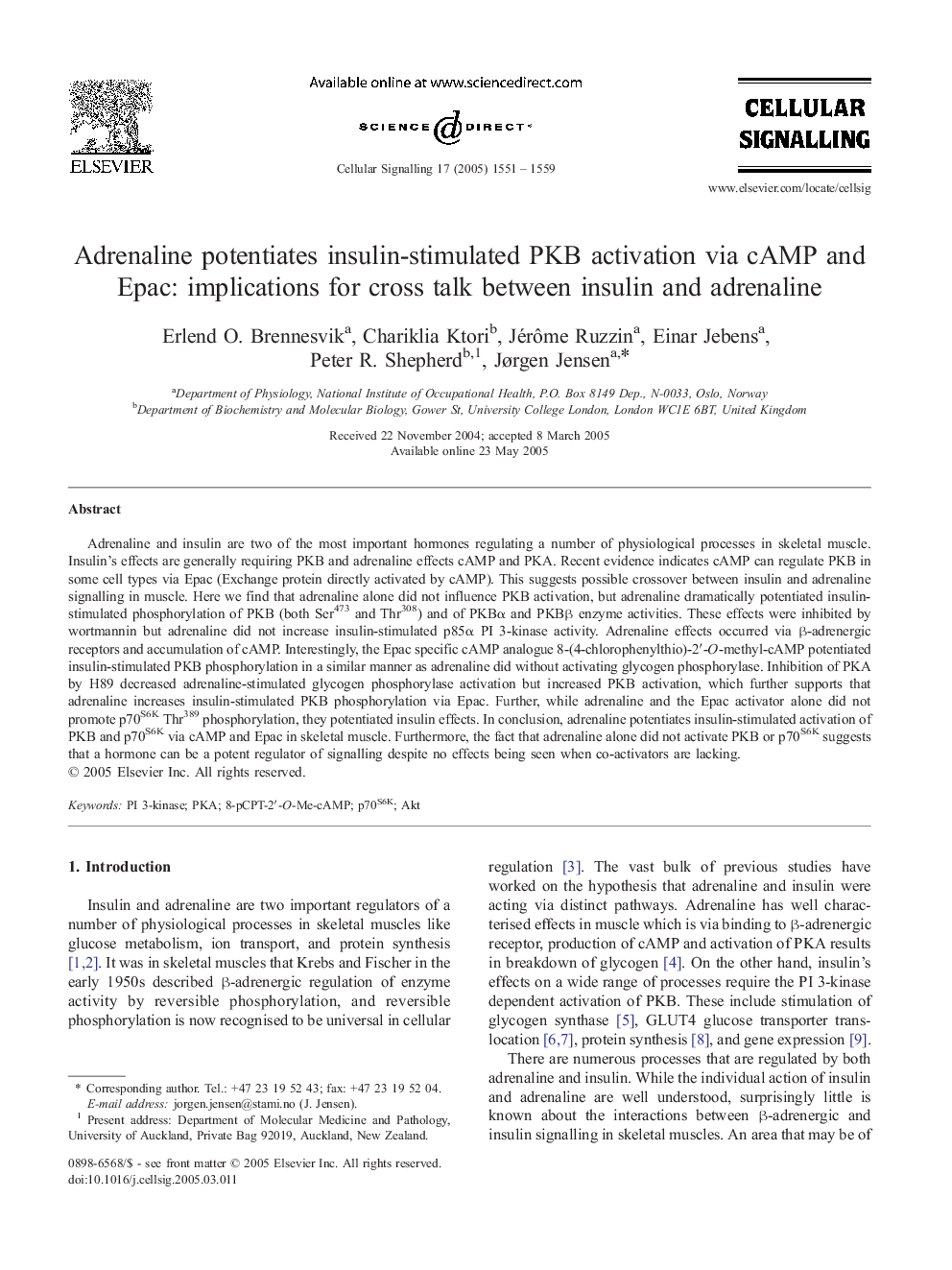| Article ID | Journal | Published Year | Pages | File Type |
|---|---|---|---|---|
| 10817069 | Cellular Signalling | 2005 | 9 Pages |
Abstract
Adrenaline and insulin are two of the most important hormones regulating a number of physiological processes in skeletal muscle. Insulin's effects are generally requiring PKB and adrenaline effects cAMP and PKA. Recent evidence indicates cAMP can regulate PKB in some cell types via Epac (Exchange protein directly activated by cAMP). This suggests possible crossover between insulin and adrenaline signalling in muscle. Here we find that adrenaline alone did not influence PKB activation, but adrenaline dramatically potentiated insulin-stimulated phosphorylation of PKB (both Ser473 and Thr308) and of PKBα and PKBβ enzyme activities. These effects were inhibited by wortmannin but adrenaline did not increase insulin-stimulated p85α PI 3-kinase activity. Adrenaline effects occurred via β-adrenergic receptors and accumulation of cAMP. Interestingly, the Epac specific cAMP analogue 8-(4-chlorophenylthio)-2â²-O-methyl-cAMP potentiated insulin-stimulated PKB phosphorylation in a similar manner as adrenaline did without activating glycogen phosphorylase. Inhibition of PKA by H89 decreased adrenaline-stimulated glycogen phosphorylase activation but increased PKB activation, which further supports that adrenaline increases insulin-stimulated PKB phosphorylation via Epac. Further, while adrenaline and the Epac activator alone did not promote p70S6K Thr389 phosphorylation, they potentiated insulin effects. In conclusion, adrenaline potentiates insulin-stimulated activation of PKB and p70S6K via cAMP and Epac in skeletal muscle. Furthermore, the fact that adrenaline alone did not activate PKB or p70S6K suggests that a hormone can be a potent regulator of signalling despite no effects being seen when co-activators are lacking.
Related Topics
Life Sciences
Biochemistry, Genetics and Molecular Biology
Biochemistry
Authors
Erlend O. Brennesvik, Chariklia Ktori, Jérôme Ruzzin, Einar Jebens, Peter R. Shepherd, Jørgen Jensen,
